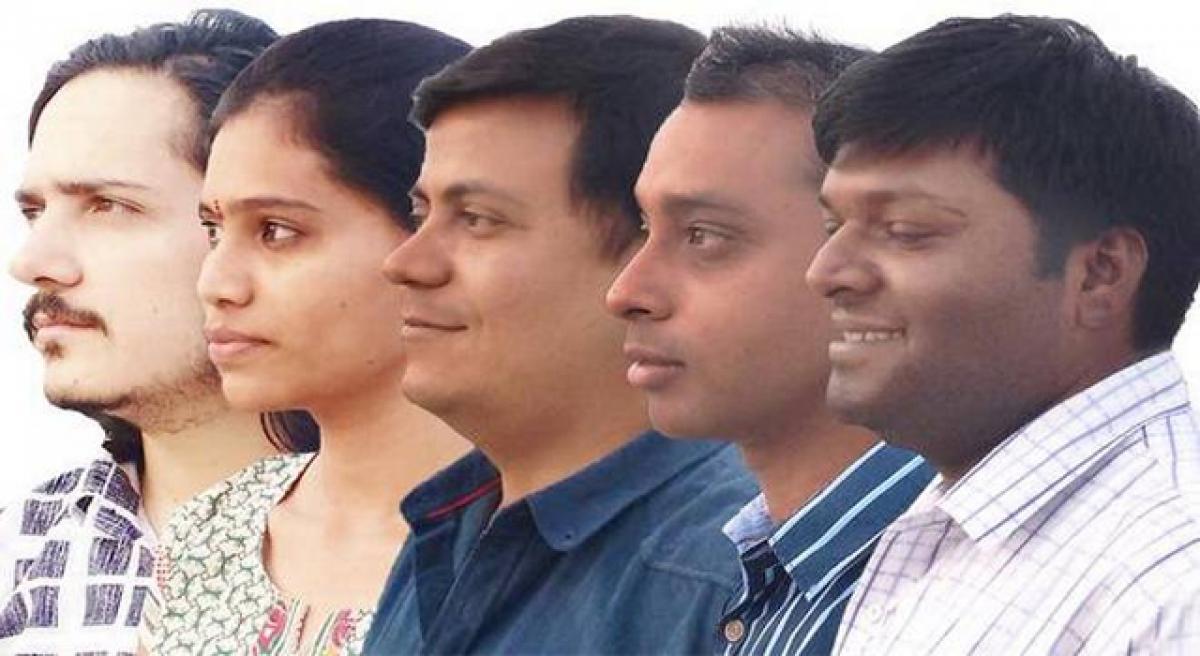Live
- Congress candidate sure of victory in Karimnagar
- India needs multi-pronged strategy to strengthen job search help mechanism
- Singer Karthik put up a spectacular show at TKR college fest Shiznay 2024
- India's 2024 cocktail scene to transform with eco-friendly, global fusion, and tech-infused experiences
- Announcement of BRS candidate opens can of worms
- ‘Bandi must win to ensure justice for Vishwakarmas’
- Gold rates in Hyderabad surges, check the rates on 05 May, 2024
- Gold rates in Delhi surges, check the rates on 05 May, 2024
- Gold rates in Visakhapatnam surges, check the rates on 05 May, 2024
- Gold rates in Vijayawada surges, check the rates on 05 May, 2024
Just In

We, humans live in history, in a situation where the future cannot be known, and the past cannot be changed and, therefore, where the unpredictable is constantly turning into the irreversible.
We, humans live in history, in a situation where the future cannot be known, and the past cannot be changed and, therefore, where the unpredictable is constantly turning into the irreversible. To live this way is simply an aspect of the human condition; it is a situation that everyone has to grapple with in one way or another, including social scientists and the people whom they study.
The relationship between past and future also runs in the opposite direction, for recollections are open to continual reinterpretation and reassessment. In the world of common sense, the past is often assumed to be fixed and immutable as against the ever-changing flux of the present and the supple fantasies of the future as D Zeitlyn says in his Looking Back, Looking Forward.
Pluralising is suggested as a positive step: we should be talking of pasts, futures and even of presents. This has consequences, no doubt. As we revisit yesterday - 2017 - we will be looking at an amazing texture of emotions that has engulfed the humanity, painful to some and awesome to some others. However, if we struggle to live in the past and past alone, nothing changes.
Change for that matter does not allow us the luxury of living in the bygones. Wisdom does not permit us to cling to the yesterdays’ blindly without learning any lessons and effecting changes. These are times of turbulence. Mankind is facing an identity crisis is segments. Countries are engulfed in violence, both visible and invisible. The thirst for dominance is leading to oppression of all kinds.
What have we, in our country, learnt from a Dadri or an Alwar or even Nirbhaya? What has the world learnt from the world wars? A Bosnia, Afghanistan, Syria or Myanmar? Can we simply dismiss it all as ‘past’ and say, ‘let us forget it’? It is over and gone. Things are different now? Are they? Is there any evidence that we can learn from the past? Will man be ever free from the shackles of religion, identity, politics and beliefs? Different groups have different understandings of the present.
It is best to see past as multiple not singular to proceed ahead. Is there only one present with a single truth as anthropologists’ question or is it a series of linked presents each with its own (and interconnected) set of truths? Multiple viewpoints, different interest groups and different scales have different histories as the historians’ assert.
Hence, different understandings of what is going on and how things are unfolding. History, repeats itself, the first time as tragedy and the second time as farce. If it is the second time, we should know that it is often bloody and deadly. Let us not commit the same mistakes again and realise that it is not a unipolar life. Let each of us have his/her faith, past and, above all, right to interpretation.
Let us together march towards progress and peace. “Om Dyauh Shaantir-Antarikssam Shaantih, Prthivii Shaantir-Aapah Shaantir-Ossadhayah Shaantih |Vanaspatayah Shaantir-Vishve-Devaah Shaantir-Brahma Shaantih, Sarvam Shaantih, Shaantireva Shaantih Saa Maa Shaantir-Edhi. Om Shaantih Shaantih Shaantih”.

© 2024 Hyderabad Media House Limited/The Hans India. All rights reserved. Powered by hocalwire.com







